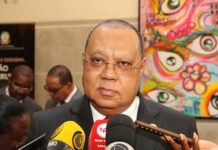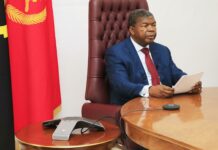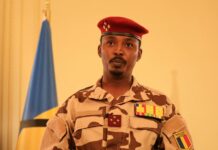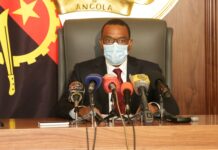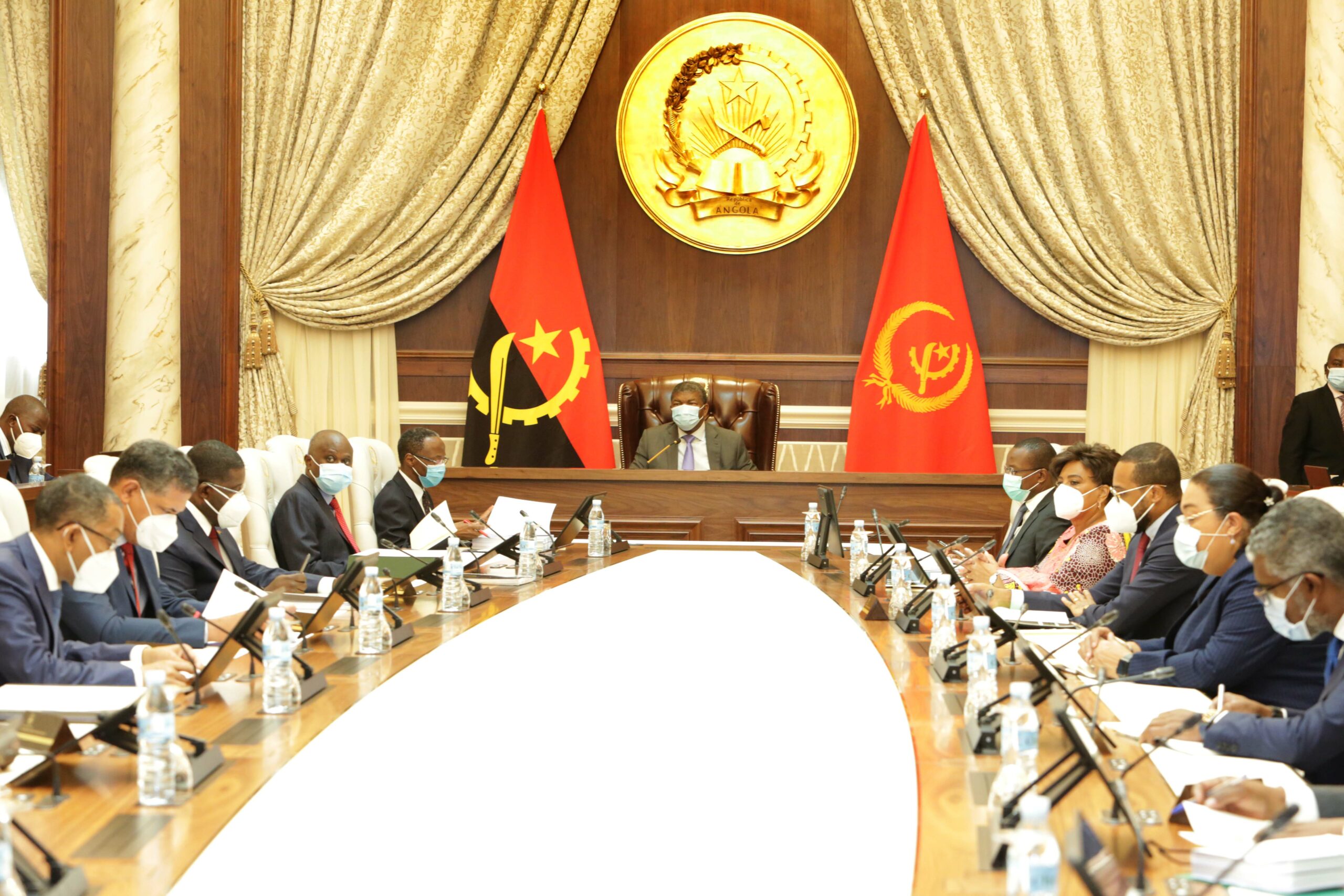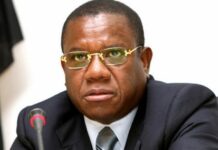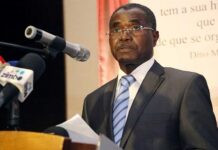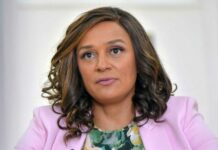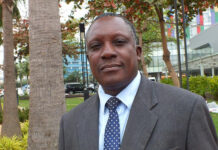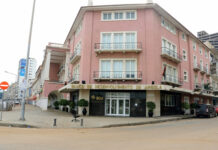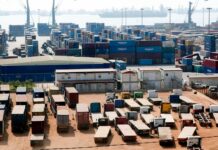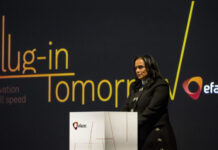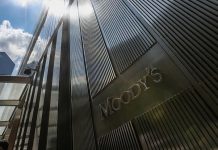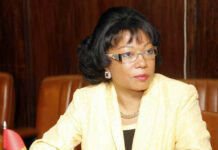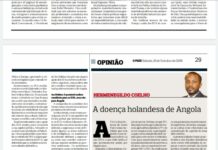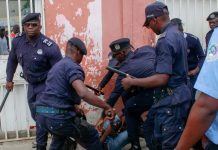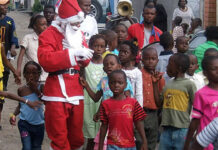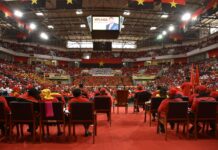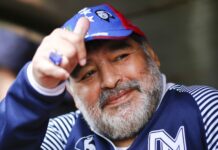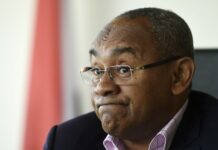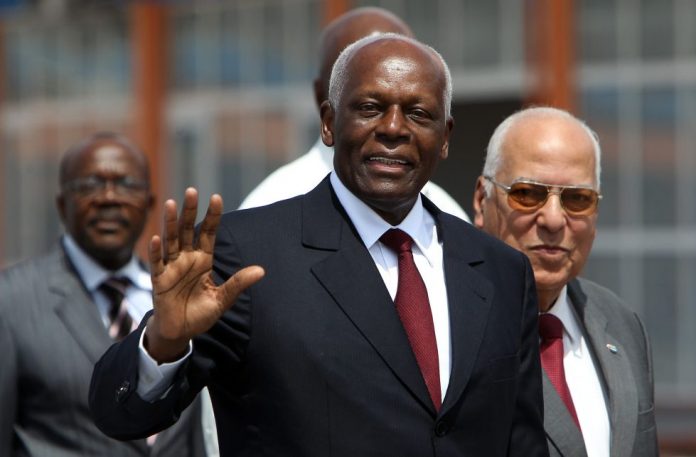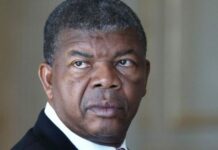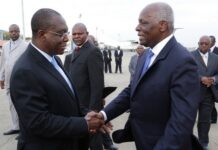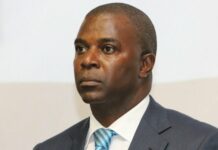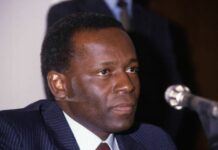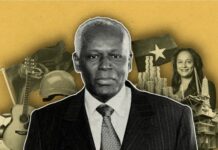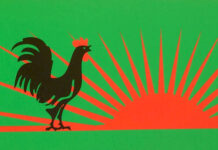The 30-year civil war and 20 years of Soviet command economy left Angola in ruins and produced a centralized government with authoritarian tendencies that made it possible for the president and his associates to own the nation’s resources. They used the government apparatus to allow themselves and their patronage networks a variety of legal and extra-legal options to extract private profit from the Angolan economy.
Funds
The former president of Angola, José Eduardo dos Santos (1979-2017), was accused of creating one of the most corrupt countries in Africa. He ignored the daily needs and concerns of citizens and instead took advantage of the country’s oil wealth to accumulate a huge fortune for himself and his family. The president’s children, senior government officials and military officials have become incredibly wealthy, while much of the country’s population lives in poverty, without access to basic services.
At the beginning of Angola’s post-independence history, most of these strategies involved the oil sector or spending revenues legally derived from the oil sector, over time corruption has evolved into a variety of schemes involving companies controlled by the party elite and its patronage networks that operate in all sectors of the economy. Systemic corruption is possible on this scale because all the vital organs of the state (military, police, judiciary, legislature, bureaucracy and media) are operated by those who prioritize their private interests within the patronage system over the responsibilities of their public position.
Corruption Indices
1. The 2019 Transparency International Corruption Perception Index gave Angola a score of 26, ranking Angola 146th out of 180 countries, all countries ranked below Angola could be considered failed states.
2. The World Bank’s 2009 World Governance Index gave Angola very low scores on the six aspects of governance assessed. Political stability improved from 19.2 in 2004 to 35.8 (out of 100) in 2009, but Angola had a much lower score in responsibility, regulatory standards, the rule of law and corruption (5.2).
3. The 2010 Ibrahim Index, Angola ranked 43rd out of 53 countries in Sub-Saharan Africa.
4. The 2010 Revenue Watch Institute Transparency Index ranked Angola 47th out of 55 countries: a score of 34 out of 100.
5. The 2010 Open Budget Index gave Angola a score of 26 (out of 100) on fiscal transparency, a big improvement over the 2004 score of 3, but a score much lower than that of most other countries surveyed.
6. 2008 Heritage Foundations Economic Freedom Index ranked Angola 161 out of 179 countries, making Angola the seventh least free economy in sub-Saharan Africa. The freedom from corruption score was 19 out of 100.
7. Angola is listed on Global Integrity’s Large Corruption Watch List, only 15 other countries have anti-corruption safeguards weak enough to be on this list.
The rankings of Angola’s corruption index have not changed substantially in recent decades; however, this does not mean that no changes have occurred. Classifications like the previous ones are based on perception surveys, their usefulness is generally questioned because they measure perception, not the occurrences of corruption; research questions define corruption imprecisely and provide little guidance on what constitutes high or low levels of corruption; people in different countries answer the previous questions in different ways, limiting comparability between countries; and the ranking and numerical scale can make countries appear more distant from each other on the spectrum of corruption than they actually are.
Historical overview
Angola’s colonial era ended with Angola’s War of Independence against Portugal between 1970 and 1975. Independence did not produce a unified Angola, however; the country plunged into years of civil war between the National Union for the Total Independence of Angola (UNITA) and the Popular Movement for the Liberation of Angola (MPLA). 30 years of war would produce historical legacies that combine to allow the persistence of a highly corrupt system of government.
Civil War (1975-1991)
The Angolan civil war was fought between the pro-Western UNITA and the communist MPLA and had the typical characteristics of a Cold War era proxy war combined with a resource-fueled struggle for control of the state apparatus between two rival strong men. Regional countries were involved according to their Cold War alignment, the MPLA was even supported by Cuban troops. Oil production started to grow, but it was not a significant proportion of government revenue until the end of the period, most of the funding came from Soviet support. Soviet influence produced a highly centralized and weakly institutionalized system of government, controlled by a small group of people close to the president. The lands, Angola’s resources and infrastructure were nationalized during this time, concentrating all the country’s wealth in the state. The war prevented economic development in most of the country, only the oil sector, the armed forces and coastal cities were financed by the state. These consequences would have a lasting effect on Angola’s political economy, centralizing the economy around the president and the military and regionalizing economic development. It is rumored that the appropriation of state assets was high during this period, although the limited connection to the international economy, combined with the lack of transparency, limits the knowledge of details and the accuracy of estimates. Only the oil sector, the armed forces and coastal cities were financed by the state. These consequences would have a lasting effect on Angola’s political economy, centralizing the economy around the president and the military and regionalizing economic development. It is rumored that the appropriation of state assets was high during this period, although the limited connection to the international economy, combined with the lack of transparency, limits the knowledge of details and the accuracy of estimates. only the oil sector, the armed forces and coastal cities were financed by the state. These consequences would have a lasting effect on Angola’s political economy, centralizing the economy around the president and the military and regionalizing economic development. It is rumored that the appropriation of state assets was high during this period, although the limited connection to the international economy, combined with the lack of transparency, limits the knowledge of details and the accuracy of estimates.
1991-2002
The withdrawal of foreign powers at the end of the Cold War and pressure from the international community led to the 1991 Bicesse Agreement: an attempt at a peace process between the MPLA and UNITA. As a consequence, the Angolan government was forced to start a process of economic liberalization and transition to democracy. The elections were held in 1992, but UNITA and its leader Jonas Savimbi refused to accept defeat and the civil war ensued. The civil war that razed what was left of the camp and killed about 1,000 people a day between 1992 and 2002 – interrupted by the Lusaka Peace Protocol on November 20, 1994 – until the war resumed in 1998.
Although the elections did not bring peace, they did provide the MPLA with international political legitimacy. The MPLA continued to be the recognized government of Angola and maintained access to oil exports and financial markets, which provided them with the necessary resources to consolidate control over new democratic institutions and the newly opened economy. Oil revenues replaced Soviet support as Angola’s main source of revenue during this time, growing to 1 million barrels a day in 2002.
The Cold War era added control of the Angolan state to a small group; simultaneously, nationalization at that time added ownership of Angola’s assets in the state. Combined with the chaos of war, the MPLA was able to avoid a robust democratization process and, instead, create a system where the president has a high level of discretion and a low level of responsibility for government spending and nominate government positions. These factors allowed for very high levels of corruption during this period: direct appropriation of the government budget was common: the IMF estimates that approximately $ 1 billion a year was appropriated from the state budget during this period. The process of economic liberalization was abused to sell state goods (telecommunications companies, media,
2002-2018
Peace was achieved in 2002 with the defeat of UNITA, the Luena Memorandum was signed and the elections were held in 2008, and a new constitution came into force in 2010. The constitution was drafted without public consultation and implemented without a ratification referendum. The new constitution increased the president’s powers so that there is no real division of powers and he is able to govern by presidential decree.
Angola’s oil production has grown from 1 million to 2 million barrels per day, while the price of oil has risen from 20-30 dollars to more than $ 100 a barrel. As a result, Angola became the 3rd largest economy in Africa with a GDP of $ 120 billion in 2013. The high price of oil had an effect similar to a resource curse: the large profits allowed considerable appropriation to be obscured by oil projects. visible infrastructure.
Although oil wealth has isolated Angola from international influence, they have faced pressure to increase public service provision, create anti-corruption legislation and improve transparency in the financial and oil sectors. Angola has made these improvements to maintain itself formally in accordance with international standards and maintain access to international markets. These changes have not been applied, however; therefore, no substantial reduction in corruption occurred – it only took on more complicated forms when international law required it.
The legacies of previous eras produced a centralized and entrenched patronage system that included all aspects of governance and the economy that proved to be quite resilient. There are, however, some prospects for change that have occurred in recent years. The Angolan government has faced increasing fiscal pressure since the collapse of oil prices in 2014 reduced Angola’s GDP to 89 billion in 2016. The reduction in revenues made debt a problem, created a shortage of foreign currency, caused a devaluation of currency and 42% inflation in 2016. The reduction in revenue exposed the country’s weakness and produced a growing movement of domestic protest in response to deteriorating conditions and more international pressure in response to the increased risk of insolvency in Banks and Sonangol.
Corruption Modes
Corruption occurs when an actor uses a public office to divert resources from the state to private individuals – the practice is systemic in Angola. The president places associates in positions of power in state institutions and companies, who then make decisions in their public capacity to allow for a variety of legal and extra-legal opportunities to extract private profits from the Angolan economy. Strategies have evolved over time from the direct diversion of oil revenues, to a variety of schemes involving companies controlled by the party elite and their sponsorship networks that have consistently appropriated resources from the Angolan state through: control over loans made by Capitalized financial state institutions; land and resources concessions; monopolization of business and import licenses; grant non-bid contracts to the companies themselves; and including unnecessary joint venture partners and overpaid consultants in the contracts of state and government companies. The magnitude of the appropriation was possible and sustainable for a long period of time because of the centralization of authority in the economy and in Organs vital organs of the state. The powerful actors of these institutions have access to patronage and govern according to the private interests of the Regime dos Santos.
Corruption of the State apparatus
Angolan observers generally believe that corruption is endemic throughout the state system. There is a lot of overlap, as well as close connections, between government officials and business figures in Angola – resulting in many conflicts of interest. Although Angola technically has the institutional and legislative structures typical of a democracy, the normal logic of horizontal accountability and depersonalized decision-making in the public’s best interest does not apply – on the contrary, the system has been described as a facade for the international community, for whereby operators from all branches of government conspire to allow each other opportunities for private gain.
Elections
Elections in Angola are administered by two agencies: the CNE (Provincial Electoral Commission) is responsible for inspection; and CIPE (Interministerial Commission for the Preparation of Elections) is responsible for administering the voting process. In theory, there should be an element of horizontal responsibility between the two institutions; however, at the federal level, both institutions are operated by MLPA insiders and, at the district level, they are often represented by the same person.
The first elections in Angola since the civil war were held in 2008. The Southern African Development Community and the European Commission described the 2008 elections in Angola as generally fair, but other observers cited irregularities and violence as factors that make elections less than fair. Registration was limited in rural areas due to documentation requirements, Angolan expatriates were unable to vote at embassies (despite the Electoral Registration Law) and there was an attempted assassination of the opposition leader in the months prior to the elections. There were also claims that the MPLA used its influence over the media to distort public perception in its favor. Before the 2008 elections,
In the months leading up to the 2017 elections, both state and private media of party members were used to portray the MPLA favorably and criticize UNITA in a similar way to the 2008 elections. The elections were subject to allegations of total forgery. The CNE announced an MPLA victory with 65% of the votes; however, media reports cite anonymous internal sources and claim that this figure was released long before local polling stations released their results. UNITA claimed that it tabulated the actual results based on the vote counts of local locations and the actual result was: 47.6% for the MPLA and 40.2% for UNITA.
Bureaucratic Corruption
Angola’s business environment has been described as “one of the most difficult in the world” due to widespread corruption and heavy bureaucratic procedures. Angolan civil servants usually demand bribes, known as “gaseous”. paying such bribes is a normal part of doing business in Angola. The World Bank’s 2018 Ease of Doing Business Index ranked Angola 175th out of 190 countries. The 2010 World Bank & IFC Enterprise survey revealed that 75% of companies considered corruption to be an impediment to business and that they expected to pay bribes in approximately 50% of their interactions with Angolan officials. Angolan citizens often also need to pay bribes to access basic public services, such as health, education, vehicle registration and commercial licenses.
Interviews with members of the Angolan business community suggest that winning government contracts or acquiring business licenses is impossible without connections. This is particularly true with regard to Import Licenses: they are tightly controlled and restricted to the upper levels of the Santos network, the MPLA or the military elite. Angola imports most of its finished products because it has a small manufacturing industry and an export-oriented agricultural sector. The consequence of not developing local production capacity and allowing the importation of goods to be a protected monopoly is that Angolan cities are among the most expensive in the world, preventing ordinary Angolans from having access to products that would otherwise be significantly more cheap.
Judicial corruption
The function of a judiciary is to enforce the country’s laws impartially and to investigate possible violations; however, it is known that the Angolan judiciary collaborates with the regime. The president appoints judges, many of whom are or were members of the MPLA or military. Judges are known to ignore or creatively interpret laws in situations where there is a conflict of interest. The system is underfunded, insufficient and inefficient. There is a large backlog of cases and rural municipal courts are not even operational, forcing citizens to resort to traditional informal judicial systems.
Courts have also been used as instruments of repression against political opponents on several occasions. Notable examples include: the lawsuits against journalist Rafael Marquês de Morais; a 6-year sentence for Cabinda activist José Marcos Mavungo in 2015; and the book club raids in 2015.
Sonangol and the Oil Sector
Oil has been Angola’s main asset since independence. It provided the government with a reliable and growing source of funds (except in cases of oil price volatility). Production increased from 150,000 barrels per day in 1980 to 645,000 bpd in 1995, to 2 million bpd in 2008. Oil currently provides about 80% of government revenue, as such it is also an important vehicle for appropriation.
Sonangol, an Angolan state oil company, was created and obtained the country’s monopoly on offshore oil by MPLA in 1976. In 1980, Sonangol divided Angola’s coastal waters into exploration blocks and opened exploration rights for bidding by international companies . Sonangol then made joint ventures with a consortium of companies in each block to extract the oil. Sonangol did not have any capacity to explore or extract offshore oil, the company only collected rents from the sale of oil rights at that time. Sonangol leveraged these partnerships to quickly accumulate wealth and capabilities. By 1991, the company had expanded to include many subsidiaries with an interest in all aspects of oil production. Despite opaque finances and the relationship with the regime,
The Angolan oil sector is an enclave economy archetype: it is physically remote from Angola and does not depend on the country for work, capital, infrastructure or demand. Sonangol and MPLA managed it as a classic example of a Gatekeeper state seeking income that is a front for a presidential sponsorship network. A portion of Sonangol’s revenue has been consistently diverted every year: instead of passing from Sonangol to the Angolan government, billions of dollars have simply disappeared. This was possible because: the laws of Angola were ignored; the transparency of Sonangol and the government budget was very low; and Sonangol had many vaguely defined responsibilities beyond the oil sector that were used as an explanation.
In addition to direct embezzlement, Sonangol facilitates indirect modes of private ownership, including: mandatory joint ventures with low added value sponsorship companies; preferential treatment of companies favored in the granting of exploration and extraction contracts; preferential treatment of own subsidiaries when awarding auxiliary service contracts; allowing companies to charge more for services; including unnecessary consultants in their contracts and paying them high fees.
Government policy also allows corruption in the oil sector. The “Angolanization policy”, initiated in the 1980s, mandated the employment of Angolans in the oil sector. In the 1990s, it extended to the mandate of participation of Angolan companies in the ancillary aspects of the oil sector, namely maintenance of wells, construction and general acquisition of goods and services. This is widely understood as a form of rent taking, as Angolan companies rarely add value to the project or create jobs. They are simply owned by Angolan officials close to the President of the Republic who use a law created for that purpose.
Another, more subtle form of corruption related to Sonangol involves its decision not to develop local refining capacity. Only one refinery is under construction, Refinaria do Lobito, and its cost has tripled over the course of the project due to corruption and poor management. Being a country with so much oil, it is likely that a competitive refining market or an efficient state refiner will supply oil products to the Angolan economy at a lower cost than imports, while keeping the profits from this activity in the hands of the government. Instead, Angola lacks refining capacity and a joint venture between Trafigura, a Swiss multinational, and Cochan, a company owned by Vice President Manuel Vicente (CEO of Sonangol from 1999 to 2012), General Manuel Dias (“Kopelipa”) and General Leopoldino Fragoso do Nascimento “Dino” have a monopoly on the import of oil products. Angola spends approximately $ 170 million per month on the import of oil products.
The collapse in oil prices in 2014 revealed Sonangol’s main problems. The dramatic decline in revenue has put the company in a position where it has struggled to meet its financial obligations, and its corruption and questionable accounting practices have been exposed. Since 2011, they had been showing a positive balance, but only because they were revaluing their assets to hide the poor cash flow. In 2015, the former chairman of Sonangol’s board of directors, Francisco Lemos, publicly stated that he believed Sonangol was bankrupt. They maintained an outstanding debt of $ 300 million with Chevron throughout 2015 and in 2016, the Development Bank of China suspended Sonangol’s credit line after failing to deliver an oil shipment.
In June 2016, President dos Santos appointed his daughter, Isabel dos Santos, as CEO of Sonangol. This represented a huge conflict of interest, as it was politically connected and in control of other companies that were shareholders, debtors, creditors, suppliers and customers of Sonangol. She was involved in various corrupt activities during her tenure. She prioritized repaying a $ 1 billion loan to the Trafigura-Cochane joint venture in which she participates in relation to other obligations. He also took advantage of his position to award an exclusive supply contract for the purchase of food from Sonangol to his supermarket – Candando. It has also made its company a preferred supplier for most other products.
Corruption of the financial sector
Poor management and ownership is a serious problem in the Angolan banking system: in 2013, there were about US $ 3.5 billion in non-performing loans in Angolan banks. Angolan banks have historically operated according to similar ownership strategies: banks capitalized by the Angolan State are operated by individuals associated with the President, who then invest the funds in complicated networks of companies that end up being controlled by members of the presidential patronage network . The investments are: in the form of unsecured loans to companies registered in tax havens that default on the loan and perform money laundering through the international financial system; or, the money goes to a real project in Angola,
BNA
In the biggest financial fraud in Angola at the time, the Central Bank of Angola (also known as BNA) was the site of an alleged fraud case of about $ 160 million transferred to accounts abroad in 2009. Several money transfers were discovered from the Angolan treasury account at Banco Espírito Santo in London for foreign bank accounts controlled by suspects. When the law reached the minimum values of the BNA, it was BES London itself that alerted the Angolan authorities to the successive outflows of money. The fraud case was revealed by the Portuguese newspaper Diário de Notícias in June 2011. Several key officials from the Angolan Ministry of Finance and the BNA in Luande were sentenced to up to eight years in prison in 2011. Investigations are still ongoing in Portugal and Angola. In 2010,
In 2010, a US Senate corruption investigation commission reported that, ”Aguinaldo Jaime, who was governor of the National Bank of Angola from 1999 to 2002, initiated a series of suspicious US $ 50 million transactions with US banks. At each attempt, banks, concerned with the likelihood of fraud, either rejected the transfer or returned the money shortly after receiving it. The government failed to account for approximately $ 2.4 billion during Jaime’s three-year term as governor of the central bank. “
FSDEA
The Angolan sovereign wealth fund (Fundo Soberano De Angola) was created in 2011 with an initial capitalization of US $ 5 billion. The president appointed his son, José Filomeno dos Santos, as executive chairman, than longtime associate Jean Claude Bastos as fund manager. Since then, the fund has been used in accordance with standard appropriation strategies for financial institutions. In 2017, Paradise Papers revealed that Jean-Claude Bastos received $ 90 million in administration fees between 2014 and 2015. The money went to several of his companies registered in the Virgin Islands and Mauritius. During his tenure, the fund also invested in several projects where Mr. Bastos had a conflict of interest, including a deep-water port in the province of Cabinda and a hotel in Luanda.
BESA
Banco Espírito Santo Angola was created in 2002 by Banco Espírito Santo, a Portuguese family bank. In 2009, a company controlled by Manuel Vicente, General Manuel Dias Júnior (also Minister of State and Chief Security Officer of the President) and General Leopoldino Fragoso do Nascimento acquired 24% of the bank’s capital for $ 375 million. The transaction was financed by a loan of 400 million from the Development Bank of Angola (BAI), the purpose of the additional 25 million was not declared and its eventual use is not clear. Manuel Vicente was then Vice-Chairman of the Board of Directors of BAI, presenting a conflict of interest. Isabella dos Santos has also owned 19% of the bank since 2006. BESA audits by KPMG and Deloitte show that between 2009 and 2013 BESA lost more than $ 5 billion in unsecured loans made to companies without internationally registered assets. These revelations led to corruption investigations in Portugal against the Santo family, BES employees and members of the Angolan Elite. BESA collapsed in 2014.
BDA
The Development Bank of Angola (Development Bank of Angola) was created in 2006. In 2016, the BDA revealed that it had $ 400 million in losses on unsecured loans that had not been repaid, and that about 70% of the loans already issued by the BDA was unsecured. Paixão Franco Júnior was president of the bank between 2006 and 2013. In 2010 he was already inexplicably one of the 50 richest people in Angola. Reports emerged in 2013 linking it to corruption.
Corruption in Infrastructure
There has been a high level of infrastructure corruption in Angola since the early 2000s. High oil prices have provided the funds and access to credit necessary to rebuild the country’s infrastructure after the civil war, and a major construction boom has taken place. followed. Many of the main infrastructure contracts were issued to companies belonging to members of the regime without competitive bidding processes. The magnitude of the corruption was such that, according to the Portuguese newspaper Expresso, President Dos Santos awarded more than $ 14 billion in public contracts to his children’s companies between 2006 and 2016.
The general process of ownership of infrastructure projects involves pricing the project above what it should cost and then subcontracting the construction to a foreign company for less money. In addition, the Angolan government and Angolan banks often bear most of the financial costs, allowing the sponsoring company to retain a disproportionate share of the property.
The construction of Cabinda’s deep water port illustrates the details of the above strategy. In 2011, Caioporto SA, a newly created company owned by Mr. Bastos de Morais, obtained the contract through a non-bid process. The initially stated plan was for the $ 500 million project to be entirely financed by private sector loans to Caioporto, however: such an investment was not available. In an effort to attract investment, the President amended the contract so that the Angolan government would guarantee all loans made to Caioporto, and also guarantee the company a minimum profit – effectively assuming all risks while allowing Caioporto to retain ownership. full port. Four years later the project had yet to receive any private investment, so the President dos Santos changed the business again. The cost increased to $ 890 million: The Angolan Sovereign Wealth Fund (FSDEA) would pay the remaining 15% in exchange for 50% of the port’s ownership. The construction would be done by China Road and Bridge Corporation (CRBC). The result is that Mr. Bastos de Morais acquired 50% of the port property without contributing any of the necessary investments or carrying out any of the works. In addition, Jose Filomeno dos Santos collected consulting fees from China Road and Bridge Corporation for helping them close the deal. The result is that Mr. Bastos de Morais acquired 50% of the port property without contributing any of the necessary investments or carrying out any of the works. In addition, Jose Filomeno dos Santos collected consulting fees from China Road and Bridge Corporation for helping them close the deal. The result is that Mr. Bastos de Morais acquired 50% of the port property without contributing any of the necessary investments or carrying out any of the works. In addition, Jose Filomeno dos Santos collected consulting fees from China Road and Bridge Corporation for helping them close the deal.
Other notable cases of corruption related to property and infrastructure construction include: the Caculo Cabaça Hydroelectric Project 2015; the renovation of the Luachimo Dam in 2013; [36] the IMOB commercial tower in Luanda; and the Lobito refinery.
Corruption in the Media
The MPLA state and insiders have almost a monopoly on Angola’s media: they are used for propaganda and competitors are repressed. Although a press law passed in 2006 ended the government’s monopoly on television, it still has the main TV station, as well as the country’s only daily newspaper and radio station, and the first supposedly private TV station, established in 2008, is owned by a company with close ties to the president. Corruption is present in the formation of governments and in the use of the law against critical journalists and opposition media. The security of the State of Angola and government secrecy laws create the threat of arrest for journalists and have been used to prosecute investigative journalists.
Costa case
In April 1999, Gustavo Costa, a journalist for Expresso, wrote an article entitled A Corrupção Faz Vítimas, accusing José Leitão, the main presidential advisor, of embezzlement of government revenue. The police arrested Costa and charged him with defamation and injury. The Angolan Supreme Court found him guilty, sentencing him to eight months in prison, suspended for two years, and fining him $ 2,000.
Rafael Marques de Morais
Rafael Marques de Morias, journalist and human rights activist, wrote “O Batom da Ditadura”, an article criticizing corruption in the Angolan government and in President dos Santos, on July 3, 1999. The National Criminal Investigation Division (NCID) questioned him on October 13 for several hours before releasing him. Later that day, Morais gave an interview to Rádio Ecclésia and repeated his criticisms of the Santos government. Twenty armed members of the Rapid Intervention Police arrested him along with Aguiar dos Santos, editor of Agora, and Antonio José Freitas, Agora reporter, accused of defamation on October 16, 1999. Marques said that dos Santos was responsible for the “destruction of the country… by promoting incompetence, embezzlement and corruption as political and social values ”.
In 2015, Rafael Marques de Morais was sentenced to 6 months of suspended sentence for libel and defamation for publishing a report on human rights abuses in Angolan diamond mines. The charge was that two army generals who held mining concessions were using police and private security forces to violently displace diamond miners.
Rafael Marques de Morais was again tried in April 2016 for “insulting a public authority” under the Security Law of the State of Angola. He had published a report that accused the attorney general, General João Maria de Sousa, of changing the designation of a 3-hectare property by the sea to “rural land” so that he could buy it from the state for $ 3500 and then redesign it and build a condominium. There was also a second charge of “committing an outrage against a sovereign body” because the report included an charge that President dos Santos protects corrupt actors. Mariano Brás, director of the weekly O Crime, was also accused of the same crimes for publishing the report.
Domestic Anti-Corruption
Although President dos Santos started publicly defending a “zero tolerance” approach to corruption in 2009, the internal application of the existing law is minimal and the investigative capacity of control agencies is weak. The internal anti-corruption policy in Angola remained a facade throughout the Santos presidency because he was the main source of government policy, as well as the operator and the main beneficiary of corruption in Angola.
However, there are some prospects for future reforms. João Lourenço became MPLA leader and was elected President on August 23, 2017. He promised to fight corruption and improve governance; however, the widespread culture of corruption and vested interests in the legislature, bureaucracy, the judiciary, the armed forces and the business community create a significant barrier. Although it is not unprecedented for a highly corrupt regime to pursue anti-corruption reforms in specific sectors of the economy if it is in the regime’s interest (as in the Philippines and Indonesia). Continued low oil prices and international pressure can lead to reforms in key areas, such as banking supervision, tax collection or infrastructure contracts.
In the event of political will, Angola would need to improve its transparency and oversight mechanisms so that existing institutions that are designed to fight corruption are able to perform this function. This would require a dramatic increase in funding and a redesign of its powers. Given Angola’s initial position, doing so would amount to a comprehensive civil service reform.
Policy change
João Lourenço was elected President on August 23, 2017. He has been a member of the MLPA since his adolescence during the colonial war. He followed a typical MLPA career path: he received military training and education in the Soviet Union; then he was a military man in the 1980s; then, he served as secretary general from 1998–2002; member of the 2002-2014 national assembly until he became minister of defense. Despite his long history with the MPLA, his record corruption is surprisingly clean and his wealth and commercial interests – although significant – are not nearly on a par with those closest to President dos Santos.
President Lourenço introduced himself as a reformer. Since his election, he has declared that he intends to: improve government probity and increase transparency and accountability; diversify the economy; nurture an autonomous civil society; and reduce media censorship. João Lourenço’s opposition to the status quo is uncertain, however; It is rumored that there was an agreement between Lourenço and dos Santos before the transfer of power, according to which Lourenço agreed to protect the legal, economic and political interests of the Santos’ inner circle. In contradiction to this reported agreement, however: President Lourenço removed the inner circle of corrupt actors (Manuel Vicente, General Helder ‘Kopelipa’ Vieira Dias, Isabel dos Santos, Eduardo dos Santos, Jean Claude Bastos de Morais) from the appointed positions; they specifically targeted their economic interests; and initiated legal proceedings.
He also targeted his economic interests and sources of appropriation. In his inaugural address, he specifically mentioned the Angolan cement and telecommunications monopolies, both controlled by Isabel dos Santos. He then closed GRECIMA, the advertising office of the president’s office, in late 2017. GRECIMA had been accused of embezzling hundreds of millions of dollars to a company, Semba Comunicação, owned by Isabel and José Filomeno dos Santos in past decade. In 2011, this amount totaled 110 million. In March 2018, the Attorney General’s Office indicted José Filomeno dos Santos and Valter Filipe for their role in attempting to send $ 500 million from the National Bank of Angola (BNA) to an account in London. British authorities detected the fraud and froze the funds.
In November 2017, President Lourenço invited IMF staff to Angola to make preparations for a formal Article IV consultation mission that ended in March 2018. The IMF’s preliminary report on the mission portrays the Lourenço government favorably and it implies that they may be inclined to pursue reforms in state-owned companies, banks and governance (and that they may need it if oil prices remain low). The full report on the consultation mission will be released in May 2018.
President Lourenço’s decisions have been praised in general, even by those who traditionally criticize the government. He has maintained support from the MLPA and the military so far; but it is still unclear whether or not he is a real reformer, or whether he is merely trying to remove the network from his predecessor, consolidate his own power and gain much-needed domestic and international legitimacy by posing as an agent against corruption. Even if President Lourenço wishes to be a reformer, it seems unlikely that the MPLA will allow a significant change in the status quo. Although he removed Santos’ inner circle, the remaining party elite has entrenched interests across the economy and they are unlikely to accept major reforms that affect their privileged position in Angola’s political economy. While it is possible that the entry of a new president – in the context of an economic crisis and growing protests, pressure for international reforms and assistance from foreign legal entities – may create some space for progress. The need for credibility and efficient government finances can lead to a compromise between entrenched interests and the new regime, whereby control agencies are empowered to deal with low-level corruption or with specific components of the economy whose integrity is considered essential for the long-term viability of the regime.
There is also some evidence against President Lourenço’s probity. In February 2018, he was accused of being involved in a conflict-of-interest transaction and obtained personal benefit. Five passenger planes were sold by the Angolan State to three companies linked to the president: SJL-Aeronautica, owned by his brother; Sociedade Agropecuária de Angola, owned by General Higino Carneiro, Vice-President of the Assembly of the Republic; and, Air Jet, owned by former Air Force officer, António de Jesus Janota Bete. The planes were sold for an undisclosed amount and without bidding.
Legislation
Angola has a reasonably comprehensive set of anti-corruption laws, however, they are rarely enforced. The laws below are the main anti-corruption laws in Angola, but their combination technically prohibits most corrupt actions; violations are handled through the normal judiciary and there are no dedicated agencies capable of investigating and prosecuting violations.
Public Procurement Law
The Public Procurement Law governs the government’s hiring process and contains provisions that affect public and private actors. Its provisions effectively prohibit corrupt actions; however, it also lacks enforcement mechanisms in addition to a clause stipulating that any contract made in violation of the law is automatically void.
Probity Public Law (2010)
The public probity law governs the behavior of public actors in Angola. It offers decent coverage to prohibit corrupt actions, but there are some notable omissions and does not include investigative and enforcement mechanisms. It allows individuals to report violations to the courts, which then decide whether or not to conduct an investigation. The process is not transparent and does not leave claimants without any additional recourse if the case is ignored by a judiciary with little funds and political influence. The law also contains an anti-defamation clause that was used to prosecute journalists for making allegations of corruption. In the context of low trust in institutions and a history of violence, these factors make it unlikely that complaints will be made and judgment will be made.
The Public Probity Law contains some potential loopholes. The law allows exceptions when public officials can accept gifts (i) goods that can be transferred to the state or public entities; (ii) gifts that are in accordance with normal protocols and are not harmful to the good image of the State; (iii) gifts on festive occasions, such as birthdays, weddings and New Year’s Eve. The public probity law prohibits a substantial list of items that cannot be supplied to a public official, but there are some notable exceptions, such as jewelry and stocks.
The public probity law also provides that all government officials must declare their assets every two years, but the information is not made public and can only be accessed by court order if it is relevant to an investigation. There is no real audit mechanism, so reporting requirements can easily be met dishonestly
Money laundering laws
Angolan anti-money laundering legislation includes: the Anti-Money Laundering and Terrorism Financing Act; and the Law for the Designation and Execution of International Legal Acts. The law makes the expected bans, including reporting requirements for financial institutions.
There is also the 2015 Law on the criminalization of money laundering offenses that contains many more provisions than its name implies. It contains prohibitions against a variety of criminal activities and was produced so that Angola could conform to the international treaties that the country has ratified. The law has been criticized for having relatively small penalties that can be reduced if the money is returned.
Control Bodies
An effective control agency has: autonomy from political interference; full jurisdiction (no immunity for government positions); the power and ability to investigate and prosecute corruption cases; a judicial system that is also autonomous and equipped to deal with cases efficiently (preferably as a separate court from the main system that specializes in corruption); competent team and decentralized leadership; procedures to have their performance evaluated.
Although Angola has some anti-corruption agencies, the above characteristics are generally lacking. Although, the main legislative and institutional structures of typical control agencies at least exist. Angola’s anti-corruption institutions are:
1. There is an office specialized in corruption in the Attorney General’s office, but this position is appointed by the President and cases are processed in the main judicial system, so the effectiveness of the office depends on top-down political will and jurisdiction of the courts.
2. The Ombudsman was created in 2005. Its purpose is to receive complaints of human rights from citizens and produce reports that make recommendations. Submits semi-annual reports to the National Assembly Committee; the reports receive superficial attention, but have produced no action. The Ombudsman is chosen by 2/3 of the votes in the legislature; the political independence of the post was questioned.
3. The Court of Auditors, whose director is appointed by the President, is responsible for auditing government spending. The institution has the power to investigate, but must forward its report to the judiciary, where the decision is made to prosecute or investigate further. Audits are not publicly disclosed.
4. The Financial Information Unit was created in 2011 and is responsible for auditing Angolan banks. They receive reports required by law and are responsible for collaborating with law enforcement and financial control agencies in other countries. In 2013, the Financial Action Task Force (FATP) criticized the fight against money laundering by Angolaleis (AML) and FIU for not sufficiently: criminalizing money laundering and financing of terrorism; establish and implement an appropriate legal framework for the confiscation of funds related to money laundering and the identification and freezing of terrorist assets without delay; ensure the effective functioning of the Financial Intelligence Unit; and ensure that appropriate laws and procedures are in place to provide mutual legal assistance. [49] In 2016,
Media, Civil Society and Resistance
Critical media, an active civil society and the presence of protests can all contribute to the likelihood of reform. It can gradually spread awareness, change culture and keep reforms on the government’s agenda. In the case of Angola, these factors have been consistently suppressed, so that their size and effect have been limited. The existence of protests and the need for repression can have some consequences for the stability of the regime if excessive repression and further deterioration of the economic situation lead to large-scale protests that disrupt the status quo (a logic similar to the Arab Spring).
A protest movement emerged in 2011 following an appeal for the manifestation of the Angolan musician and defender of the fight against corruption Luaty Beirão; however, only a few minor protests took place that year and they were quickly closed by the police. The scale of the protests increased slightly in the months leading up to the election, but uniformed men would arrive to attack the protesters. The scale of the protests was limited in such a way that no unified organization emerged from the protest movement, although they call themselves Revolutionary (Revolutionary Youth) and have some presence on social networks. Members also often engage with opposition groups as individuals.
Protests continued to occur sporadically during 2017 in response to political and economic complaints and against instances of repression. Notably in response to Luaty Beirão’s arrest and hunger strike in 2015, a leak in 2013 about the extrajudicial murder of two former presidential guards in 2012 and the subsequent revelations of extrajudicial killings under the Santos regime until 2016. The scale of the protests increased, although not on a mass scale; It remains to be seen whether the protest movement will influence President Lourenço’s policies or whether they will face continued repression.
International Anti-Corruption
Angola has faced increasing pressure to comply with international governance standards. Treaties have played an important role in the mandate for creating laws and institutions in Angola. Among others, Angola signed and ratified the African Union Convention for the Prevention and Combat of Corruption, in 2004 the African Peer Review Mechanism and the United Nations Convention against Transnational Organized Crime. In 2010, Angola ratified the United Nations Convention against Corruption (UNCAC) – the most comprehensive international treaty against corruption. To comply with these treaties, Angola has implemented reasonably comprehensive anti-corruption legislation. Domestic oversight has been minimal until now, but international treaties continue to require additional reforms that will at least
International institutions and foreign legal institutions can also mitigate Angolan corruption to some extent. Its policies focus on ensuring that its loans are not appropriated and on ensuring that multinational companies are not involved in bribery. Legal action is limited to cases where individuals, companies and the money involved in corruption leave Angola and violate foreign law, so the actors involved can face legal consequences in foreign courts. There have been cases in which regulatory agencies in foreign countries have detected the laundering of money from Angolan actors and initiated their own legal procedures, such as the BESA case and the respective case of bribery and judicial interference against Manuel Vicente. The additional suspicion of Angolan transactions can increase scrutiny and create a barrier to your ability to use your illicit profits, asset recovery attempts or potentially even the sanction of specific individuals. The aggressive international intervention has not occurred until now, as the main nations have remained strategically indifferent in supporting their interests instability, continued access to oil, and the interests of their multinationals in Angola.
The intervention of international actors generally requires the country in question to invite intervention. For specific cases, assistance is theoretically available regarding the costs involved, investigation, human capital, asset recovery, extradition and collaboration with foreign legal systems. Likewise, for institutional development, the knowledge, logistics and training needed to establish effective control agencies could be provided, but, again, this depends on Angola’s political will.
Cases of foreign institutions affecting Angolan Corruption
In 2017, Manuel Vicente incurred numerous charges related to the bribery of a Portuguese prosecutor during the BESA investigation in 2013. The investigation revealed that BESA (partially owned by Mr. Vicente) had lost $ 6.8 billion in a pattern of unsecured loans, however; inexplicably, prosecutor Orlando Figueira, decided that there was insufficient evidence to proceed. The Portuguese Judiciary Police investigated this suspicious decision: it found that Figueira had received 400,000 euros from a company linked to Sonangol and also violated the court’s secrecy by providing Vicente’s lawyer with all relevant documents during the investigation. Mr. Vicente is still under investigation.
In March 2018, the prosecution of José Filomeno dos Santos and Valter Filipe was made possible by British inspection bodies that recognized the operation as suspicious, froze the funds and forwarded the information to the Angolan authorities.
In 2013, there are three cases of Angolan money laundering to be investigated in Portugal. Two of which involve funds of suspicious origin that appear to have passed through multiple jurisdictions and companies to third parties before being used to purchase real estate in Portugal. In these cases, the investigations were halted because Angola did not provide financial information. The third case was discovered accidentally during a tax crime investigation by a Swiss company. The company also benefited from funds from an offshore account controlled by a Portuguese company that exports food products to an Angolan supermarket chain owned by a senior Angolan military. The funds flow from the Angolan company to the offshore account, then most of the funds went to the Portuguese company, but a portion was diverted to the Swiss company and then distributed to accounts controlled by other Angolan employees. $ 2 million was distributed in this way between 2006 and 2010.
In 2017, the United States also launched an investigation into the collaboration between Angolan actors and American companies for money laundering and concealment of bribe payments.
International Money Laundering Limits and Bribery Law
The idea that international law can restrict the financial flows of corrupt actors and offer opportunities for them to be prosecuted in foreign courts depends on the participation of the countries involved. In practice, these laws are preventable: Angolan actors are known to use tax havens where financial supervision is weak and such laws are not enforced robustly. International financial supervision depends on collaboration between national financial supervision agencies; if the money trail passes through an uncooperative jurisdiction (such as Angola), it may become impossible to obtain the information necessary to satisfy the evidence requirements of a court case.
The preferred investment destination of wealthy Angolans is Portugal; surprisingly, there were no bribery or money laundering convictions related to these transactions. A recent OECD report accused Portugal of neglecting to investigate money laundering and bribery in accordance with treaty obligations. Only 15 cases of foreign bribery have occurred in Portugal since 2001, 8 were closed before the trial and the other 7 remain under investigation. The report raises the possibility that Portugal’s economic interests in Angola may influence the country to neglect the issue and that Angola may have influenced the Portuguese judicial system to ignore specific cases of corruption.
China’s influence
China has become Angola’s biggest trading partner. The relationship started with increasing oil purchases (63% of Angolan production in 2016) and expanded with Chinese loans and direct investment in oil exploration and infrastructure construction (totaling more than $ 20 billion since 2003). China has completed projects in all sectors of the Angolan economy and its projects tend to be completed on time and within budget, and at a much lower cost than what Angolan companies would have been able to provide. This was criticized for providing isolation from international pressure for reforms, as the Chinese are known to be willing to ignore the corruption and human rights issues of their international partners. Although the details of the relationship between Angola and China are not transparent,
It is possible that Angola’s relationship with China has a negative effect on the appropriation of State resources and a positive effect on Angola’s development. As of 2014, China became more cautious with its investments due to allegations of corruption by Chinese construction companies and reassessments that SINOPEC was losing money in Angolan operations, and the fall in oil prices and the consequent increase in oil prices. Angolan national debt. China’s investment method makes it difficult for Angolan actors to mismanage or appropriate capital: credit lines are guaranteed by oil; and investments are used for specific projects that are mainly operated by Chinese companies and workers, so there are fewer points of contact with Angolan companies or bureaucrats looking for profitability. China can be a barrier to corruption if it is diligent with its investment and continues to buy most of the Angolan production and supply most of the foreign investment to Angola; although, if that were not the case, an indifferent dominant trading partner could provide isolation from international pressure and financial constraints that could otherwise lead to reform.

